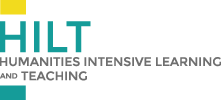Courses 2017 · TX
- Black Publics in the Humanities: Critical and Collaborative DH Projects
- Collaboration for Complex Research: Crowdsourcing in the Humanities
- Getting Started with Data, Tools, and Platforms
- Help! I’m a Humanist! — Humanities Programming with Python
- Humanities Research with Sound: Introduction to Audio Machine Learning
- Introduction to the Text Encoding Initiative (TEI) for Historical Documents
- Text Analysis
- Working with Scalar
Instructors
-
Warning: Undefined variable $page_object in /home/dhtraining/public_html/hilt/wp-content/themes/hilt-child/single-hilt_course.php on line 84
-
Meghan Ferriter
Project Coordinator Smithsonian Transcription Center
Description
Crowdsourcing can catalyze discovery and assist humanities research by mobilizing people to undertake tasks involving in-depth, large-scale, and cost-effective information gathering. When well-designed and managed effectively, crowdsourcing projects can successfully support research activities ranging from labelling images, transcribing documents, and annotating text, to parsing workflows through categorization and decision trees.
In this course, we will explore the findings of case studies from around the world and across disciplines. Participants in will explore successes and lessons learned in projects in humanities contexts, cultural heritage organizations, and citizen science. Together, we will unpack best practice in designing, managing, evolving, and completing participatory projects. We’ll assess the challenges of recruiting and supporting participants, as well as project workflows and managing data.
Students will gather hands-on experience with a range of ongoing crowdsourcing projects. We will discuss ethical considerations, responsible project design, and managing the unexpected. The class will map research and institutional needs, organizational limitations, and available tools to practical workflows. We will also consider the ways complex project goals can be broken down, modified, or scaled to achieve step-by-step success. Students will also have the opportunity to collaborate on designing a project organized around resources of their choice; building on the examples investigated during our session. Join us in this course to further evaluate crowdsourcing as a practical tool for analysis in the humanities.
Location
College of Liberal Arts Building 1.302F

